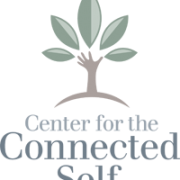So What Exactly is a Connected Self?
What is the Center for the Connected Self all about?
I created The Center for the Connected Self after several years of working with people who were suffering from a wide variety of psychological issues. What I discovered is that there was a common thread to the struggles many of my clients faced: Disconnection.
For some, this meant disconnection in their relationships. Perhaps the experience of anxiety, depression, or unresolved trauma stood in the way of them being fully present in the important relationships of their lives. Or maybe they noticed that their relationships kept ending in the same disappointing ways, over and over again.
For other clients, disconnection was most visible in the relationships that they have with themselves. Some struggled to know who they really were, what their wants or desires were. For others, it was that their actions didn’t always line up with who they knew themselves to be.
Still, for others, it is a deeper sense of purpose or meaning that they are disconnected from. They went through the motions of life just fine, but they didn’t have a clear sense of why they were here or what they were working towards.
In each case, a sense of disconnection was holding them back from something important in their life.
The Center for the Connected Self strives to help people to identify and address factors in their lives that are keeping them from having healthy relationships with themselves, important people in their lives, and/or a deeper sense of meaning.
So what does a Connected life look like?
So if disconnection is at the root of many forms of mental and emotional turmoil, what does health look like? What would it look like to live a connected life?
A connected life is not an easy thing to describe, because it can look quite different, depending on the situation. The lives of a corporate executive, a college student, a homemaker, and a retired individual might look quite different, even if they are all living in a healthy connected way.
The common qualities of these different types of connected lives are healthy connections within these individuals, healthy connections between these individuals and those around them, and the connection that these people have to a meaningful sense of life purpose.
Broken down further, these important connections comprise six core areas of personal connectedness, which I call the 6 Cs.
The 6 C’s – Core Domains of Connection
- Connection to the Authentic / True Self
- Connection to your Emotions
- Connection to your Body
- Connection in your Close Relationships
- Connection to your Community
- Connection to a sense of Deeper Purpose
These core domains of connection are interconnected, such that health or challenges in one area is likely to affect one or more of the other domains as well. Optimal functioning will involve healthy connections in all six areas.
Qualities of Connected Living
In addition to the presence of healthy connections, connected lives tend to be characterized by certain qualities that underlie an overall sense of well-being. Although it is far from an exhaustive list, some hallmarks of healthy, connected living are: authenticity, balance, and flexibility.
Authenticity is an essential aspect of living a fully connected life.Itbegins with a firmly rooted connection to your deepest and truest sense of Self. This means knowing and accepting the different facets of who you are (even those parts that we aren’t particularly proud of).
It is only after we are in touch with our true selves that we can bring a sense of authenticityto our other important relationships.
Another important aspect of a connected life is balance. It is not uncommon to find ourselves overly focused on one aspect of our lives, to the detriment of others. A connected life is not a life of extremes. Rather it is characterized by a sense of equilibrium and balance.
Connected selves do not lose their identity when they are in their relationships with others, but they also make space for the presence of others in their lives. Connected selves are in touch with their emotions, but they are not dominated by their emotional experience.
Flexibility is another common quality of people who live fully connected lives. Such people are able to adapt with relative ease, which helps them to function at a higher level.
Flexibility does not mean having poor boundaries and constantly adapting to the needs or desires of others. Nor does it mean living life in a haphazard way. Having flexibility means that you are able to step out of your comfort zone to meet the demands of a situation, without feeling overwhelmed or depleted.
A flexible social butterfly does not fall apart when they are alone. A flexible homebody is able to make it through the company holiday party, in an engaged way.
Having recognized the detrimental effects that disconnection has, I work with each individual to explore and break through any barriers to connection that they might be living with. As theses barriers are cleared, I support my clients in authoring new lives of deep connection and meaning. If you are interested in learning more, feel free to call me or email me.



